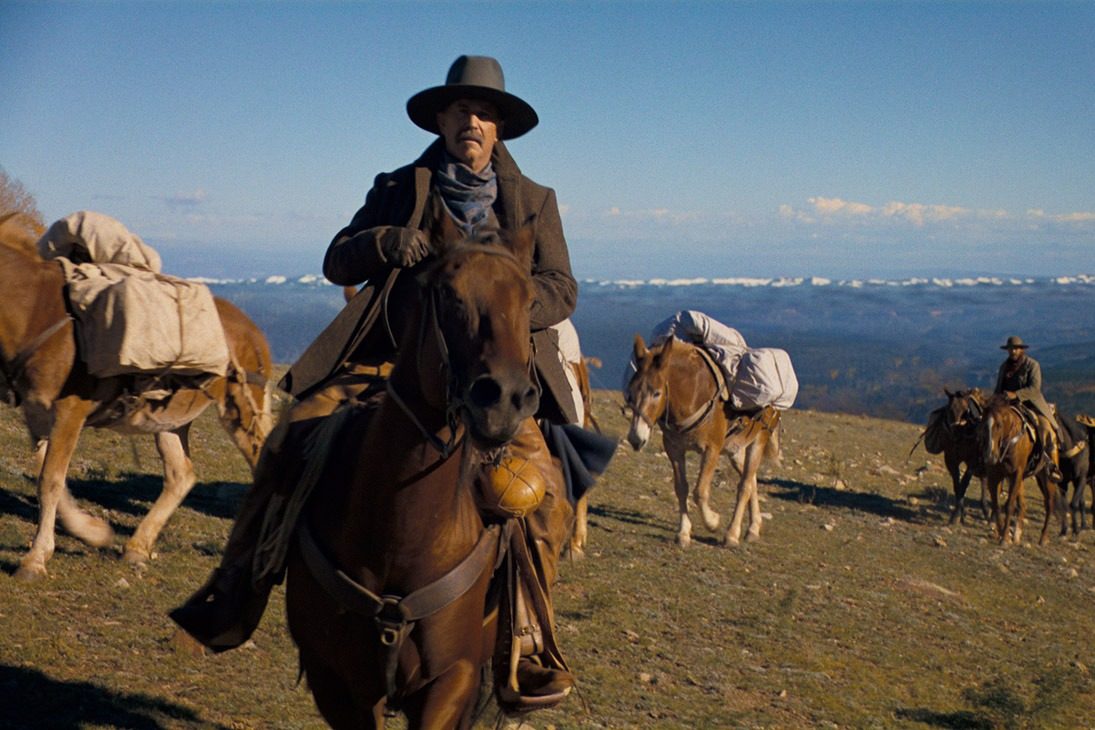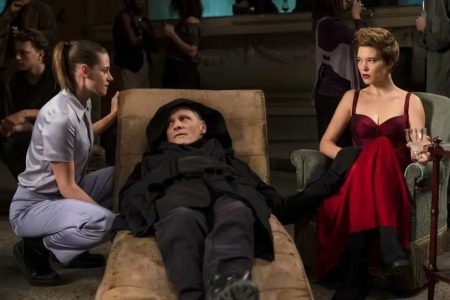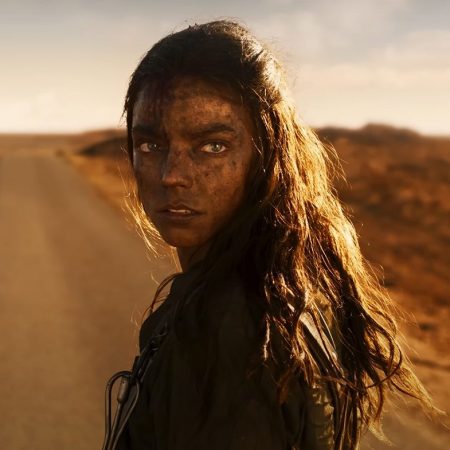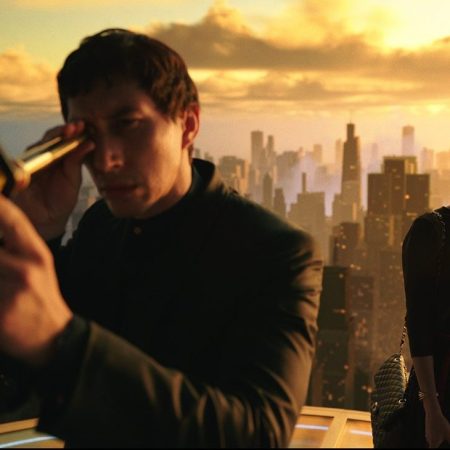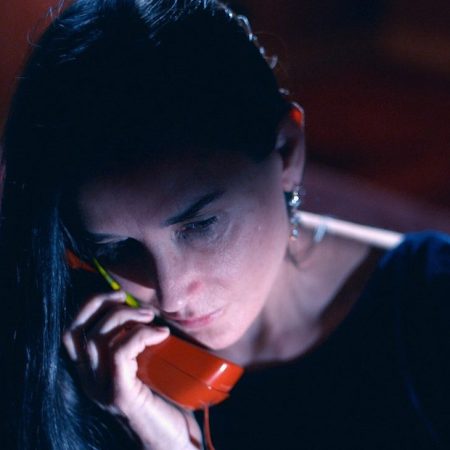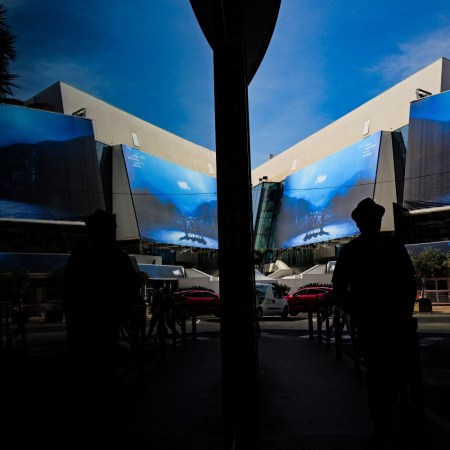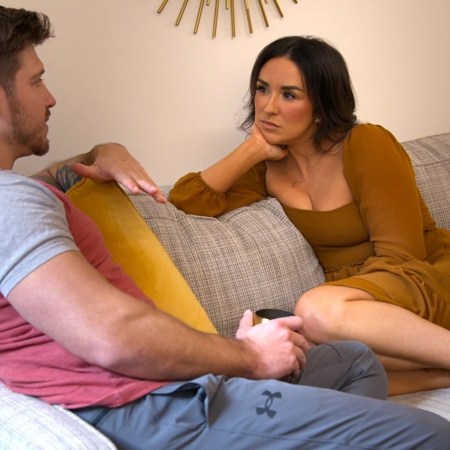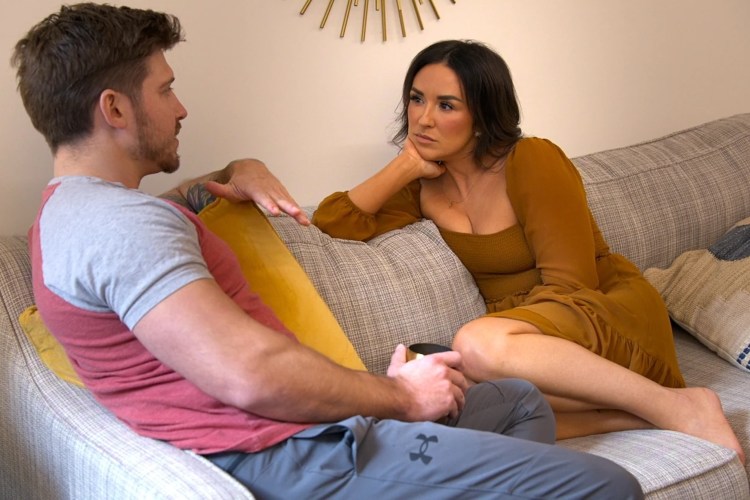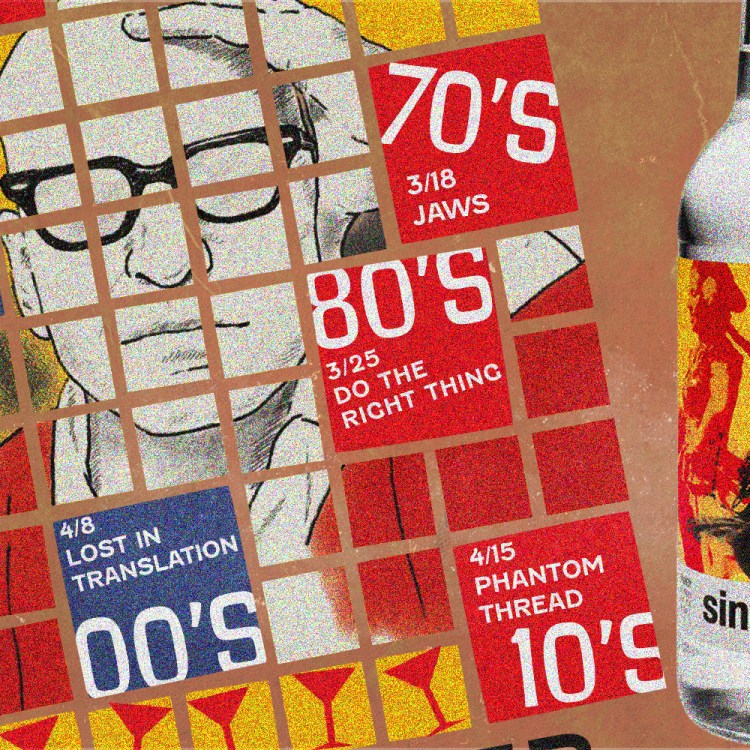This is the fourth installment of the 2024 edition of the French Dispatches, our on-the-ground coverage of the Cannes Film Festival.
Francis Ford Coppola isn’t the only filmmaker at this year’s Cannes who risked it all on an epically scaled self-funded moonshot that synthesizes the preoccupations that have defined his entire career: Kevin Costner is here with Chapter One of Horizon: An American Saga, a planned four-part, 12-hour Western epic, which he’s been developing since the late 1980s, almost as long as Coppola had been working on Megalopolis; like Coppola, he tapped into his own real-estate holdings to take on the project, taking out an eight-figure mortgage when other potential backers balked at the scope of the commitment required. While Coppola has enjoyed presenting his dream project despite its very mixed reception — “When I die,” he said at his press conference, “I got to do this” — things are much more in flux for the man the French call “Ke-veen”: Horizon: An American Saga – Chapter One comes out theatrically in June, Chapter Two in August, and their success or failure will largely determine whether the scripts for Chapters 3 and 4 actually enter production, or remain a white whale.
All this was already fascinating to me, because this is Kevin Costner we’re talking about. This is the guy who couldn’t hang with Madonna, whose persona-defining hit climaxes with a game of catch, who came out onstage at the Oscars after Will Smith slapped Chris Rock and gave a speech about going to the Cinerama Dome as a seven-year-old to see How the West Was Won. It’s doubly fascinating to me now that I’ve seen Horizon: An American Saga – Chapter One, because he has pushed all his chips into the middle of the table to make one of the most normal movies of all time. There has never been a more genial legacy play, a more middle-of-the-road display of hubris.
With Chapter One, Costner updates his childhood memories of the classical Hollywood Western to reflect a more modern understanding, hearing from all sides to consider how the West was won and where it got us. The “Horizon” of the title is, of course, an abstraction, the mythic wide-open spaces of the American West and the American ideal of Manifest Destiny, but it’s also a real place, a plot of land at a bend in the river in the San Pedro Valley, in what is now Arizona, and what is, when the film starts, the ancestral hunting ground of the Apache. Aptly for a film funded by Costner’s property investments, it’s about real estate. Near the beginning of the film, an Apache war party raids the nascent town, setting fire to its tents, scalping its citizens, and brutally slaying men, women and children; this is the inciting incident of, say, John Ford’s The Searchers (though Ford doesn’t show it), but in a parallel sequence near the end of the film, Costner updates the script by showing us the reverse as well: a band of white mercenaries massacres an Apache settlement, brutally murdering and scalping women and children alike. There is, we are meant to think, a terrible inevitability at work, that all this violence is born of an innate desire to claim the land and make a home of it, that while we may mourn the casualties and lament the brutality, we must also acknowledge that there are larger forces at work and everyone has their reasons.
This is hardly a revisionist Western — inspired by the Vietnam War, Westerns from the 1960s and 1970s were frequently much harsher about the genocidal subjugation of Indigenous people — rather, it’s a retro perspective with extra compassion, not unlike Costner’s great triumph Dances With Wolves. Aesthetically it’s a very traditional film, in line with the movies he remembers, with lots of satisfying low-angle landscape shots; the plotting is prestige TV, with Costner introducing several plotlines, spread out across the West, that, judging from the sizzle reel that absurdly closes the film, will converge over the course of the 12 hours of narrative. (My totally uninformed guess about Horizon is that it underperforms theatrically but does enough on streaming that Warner Bros. lets Costner finish it with a reduced budget and runtime, in hopes that it becomes Max’s answer to Lonesome Dove.) There are taciturn, trigger-happy and tragically grandiloquent men; there are conniving, plucky and extremely trad women. The humor is broad, and the gunplay is rousing. The film is meant to be a uniter, not a divider — so why does this supposed work of union, this literal nation-building project, fall to the messianic endeavor of a single man in the face of widespread indifference?
At 69 years old, Costner is a relative spring chicken among the white men at Cannes desperate to speak their truth in the time they have left: Paul Schrader is 77, David Cronenberg 81, and their films Oh, Canada and The Shrouds are two of my favorites of the Competition. Oh, Canada is adapted from a novel by Russell Banks, Schrader’s friend and the author of the novel Affliction, which Schrader adapted in 1997; Banks died in early 2023, shortly after Schrader nearly died of COVID-19, and the filmmaker has said that this film is his response to a sharpening awareness of mortality.
In the film, Richard Gere plays the terminally ill nonfiction filmmaker Leonard Fife, American born but a legend in the Canadian film industry (there are a number of excellent jokes about Canadian content sprinkled through the film). At the end of his life, two of his former students visit him to record an interview, intended as the backbone of a celebratory CBC documentary portrait. Despite their hagiographic intentions, however, and despite the jealously watchful presence of his younger wife (Uma Thurman), also a former student, Leonard chokes out a number of inconvenient truths, chiefly about his early life, and his decision to move to Canada during the Vietnam War. Thought to have been a draft dodger with a principled opposition to the war in Vietnam, his reasons for abandoning his young family and crossing the border were rather less noble.
Gere in his youth was often denigrated as a vapid pretty-boy actor, or, closer to the truth, described as a vague or aloof screen presence (as he is in Schrader’s epochal American Gigolo). Jacob Elordi, who plays Leonard in flashbacks, is an imperfect physical match but an inspired choice to play Gere’s younger avatar — he’s so nonchalant, so delicately featured and charming, but he rarely makes eye contact, remains elusive. As Leonard’s memory blinks in and out, both Gere and Elordi appear as the young man in the flashbacks, giving the film a wonderful time-out-of-joint feel and making its contorted structure seem subjective and engrossing rather than random and confusing.
For fans of Schrader’s delightfully unfiltered Facebook presence and irrascible pug-like speaking voice, there’s something so delightful watching a filmmaker who’s either coughing uncontrollably or else saying something he shouldn’t. (There’s also a scene that reminded me of a story Schrader often tells, that as a young seminarian he spent an evening talking movies at the apartment of the New Yorker critic Pauline Kael, who told him, when he awoke the next morning on her sofa, that he wanted to be a cineaste, not a priest; near the end of Oh, Canada, a late-night encounter with a charismatic woman is likewise crucial in future filmmaker Leonard’s decision to change the course of his life.) But even if you don’t follow or care about the film’s crypto-auobiographical resonances, there’s something bracingly bitter and unresolved in watching an artist close to death grapple with the real fear of leaving things unsaid.
The Shrouds, which Cronenberg has openly described as inspired by his grief over the death of his wife Carolyn in 2017, has another obvious authorial stand-in: as the tech visionary Karsh, Vincent Cassel is styled with an unmistakably Cronenbergian shock of white hair. Karsh is the founder and CEO of GraveTech, a company which operates a number of new, I guess you would say, smart cemeteries; bodies are wrapped in a proprietary burial shroud equipped with high-resolution digital cameras, and the bereaved can follow the process of their beloved’s decomposition through video screens on the headphones, or via the GraveTech app.
This is very funny and very moving — Karsh’s own wife Becca was Jewish, he explains early in the film, and in Jewish tradition the soul leaves the body gradually; by watching this process through the Shroud, he can, I suppose, maintain some contact with what remains of his wife, and gradually float away. (Cronenberg is Jewish as well, and now I wonder how much of his resolutely physical cinema — “Body is reality,” to quote Crimes of the Future, and all experience is first and foremost material — is inspired by the Jewish tradition’s indifference to the afterlife.)
But t his (extremely) organic process is interrupted when the cemetery is vandalized and the GraveTech app hacked. Cronenberg is probably inspired here by vandalizations of Jewish cemeteries; this is acutely cruel less because of anti-semitism than because of the affront to memory, to the physical markers that remain of the person, and in this case there’s a digital component too, because the live feed of the bodies is inaccessible — what is death, I suppose, but being permanently locked out of your account.
David Cronenberg, the King of Body Horror, Returns to Cannes With the Delightfully Gross “Crimes of the Future”
The director’s latest led to walkouts at the festival, but if you can stomach the gore, it’s worth your timeWhat follows is a very confusing conspiracy plot involving Chinese tech companies, Russian hackers, Icelandic eco-activists, Becca’s twin sister Terry (both are played by Diane Kruger), Terry’s paranoid ex-husband Maury (Guy Pearce), and Karsh’s AI personal assistant, who occasionally takes the form of a cuddly koala.
Cronenberg in his press conference was delightfully stern with “ignorant, stupid” reviewers who didn’t see how the conspiracy plot connected to his ideas of grief: Conspiratorial thinking is, he argued, a form of grieving, a rationalization that makes sense out of an emotional void, just like, say, the stories we tell about an afterlife. The emotional core of the movie is the flashbacks to the relationship between Karsh, which is very relaxed and very sexual and wife even as her living body deteriorates; it’s very beautiful, but just as the digital traces of Becca can be erased by a hack, so can Karsh’s memories of her become complicated by new information he uncovers in his investigations. Cronenberg overshares strategically, allowing his stand-in to be at times horny, at times angry and irrational; likewise the film is full of sly jokes and strange digressions and alienating yet begullingly direct stylistic shortcuts. It’s wonderful to see this great artist operating entirely on his own terms.
Response to The Shrouds has been divisive — it’s at 2.2 stars out of 4 on Screen’s International Critics Grid, but that’s par for the course for Cronenberg especially at this strange and wonderful late phase of his career. And this year more than others the Competition feels cagey. As I write this, it’s Thursday afternoon into evening in Cannes, the awards are on Saturday night, and I’m not convinced that I’ve seen the film that will win the Palme d’Or. The best movies here — Jia Zhang-ke’s Caught By the Tides, Miguel Gomes’s Grand Tour, both of which experimentally enfold documentary footage into slight but historically expansive love stories, might be too esoteric for the top prize; the biggests hits are too bad. The first real consensus pick of the fest landed Tuesday: Anora, from Sean Baker, another tender sex-work farce with multiple revelatory performances.
In this case, that’s Mikey Madison as the titular 23-year-old erotic dancer, and the young Russian actor Mark Eydelshteyn as Ivan, the 21-year-old son of a Russian oligarch, who buys a lap dance, and then an escort appointment at the family’s Mill Basin McMansion, and then a weeklong girlfriend experience, and then, then, at what amounts to the culmination of a series of escalating dares, an engagement ring — which is when the real trouble begins, as Ivan’s hard-nosed parents send over their local fixers to browbeat Anora and Ivan into an annulment.
What follows is a (sometimes too broad) run-all-night farce traversing some of New York City’s most Slavic places (including Tatiana Grill!), pulsing with the unhinged energy and dotted with the rough, unforgettable faces of an Uncut Gems. While Red Rocket was, for Baker, uncharacteristically personally critical of the giddy hustlers he’s drawn to, Anora is, for all her bravado and champagne wishes and caviar dreams, is a far more sympathetic figure than Red Rocket’s Mikey Saber; Baker’s critique, when it emerges is more holistic and general, more a lament about precarity. This is a Cinderella story, but the countdown to midnight begins after the poor girl wins her prince. Eydelshteyn is amazing, boyish and lovable in his effusiveness even — especially — during Ivan’s moments of purest self-indulgence; the film charts Anora’s shifting perspective as she comes to understand where she stands in relation to the fantasy he lives.
Anora leads the Screen Grid with a 3.3 rating, which could be meaningful and might not; the awards, I always remind myself, are decided by nine film professionals with unknowable tastes and decided during deliberations shaped by unpredictable personal dynamics and, I should hope for their sake, copious Aperol Spritzes.
This article appeared in an InsideHook newsletter. Sign up for free to get more on travel, wellness, style, drinking, and culture.
